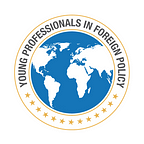Get Back to Class: How Promoting International Exchange Can Restore America’s Reputation Abroad
By Marta Millar
In March 2020, the COVID-19 pandemic brought global travel to a halt, including almost all educational exchange programs. While the Trump administration implemented policies like visa restrictions and travel bans, which further reduced the incoming flow of international scholars to the United States, other countries, like Germany, Canada, and Australia, emphasized their science-based responses to the pandemic, attracting more international students for fall 2020.
The Biden administration should emphasize international exchange programs as an important soft power tool for restoring the United States’ reputation abroad. By prioritizing international educational exchanges, the U.S. government can show its respect for science and education, re-establish its position as a global leader, and share democratic values.
Since the earliest days of the United States, educational exchanges have influenced foreign policy. German scientist Alexander von Humboldt’s visit to Thomas Jefferson spurred U.S. interest in the natural sciences and challenged the newly-formed government to match the intellectual curiosity of Enlightenment-era Europe. Following World War II, international exchange programs were an important tool for promoting democracy and establishing U.S. hegemony. The Fulbright Program grew out of the aftermath of World War II, and the Allies encouraged the establishment (or re-establishment) of exchange programs, like the German Academic Exchange Service, to help re-integrate post-war Europe. During the Cold War, international educational exchange programs were an essential soft power tool to promote Western values with the Soviet Union. After the fall of the Iron Curtain, the United States expanded outreach into the former Eastern Bloc to promote democratization.
The United States’ reputation abroad, which declined throughout the Trump administration, hit a record low in 2020. The Pew Research Center linked the abysmal U.S. response to the coronavirus pandemic to the 2020 deterioration. Opening the doors for international educational initiatives is an important step in countering these trends. Increasing scholar mobility and investing in research and education is one way to send a signal, both to the scientific community and the world-at-large, that the United States has learned from its mistakes and re-committed to enacting fact-based policy.
A commitment to the free movement of people and ideas is at the core of our democracy. Encouraging an exchange of people — even with countries that do not share U.S. values — is one of the most effective ways the United States can spread democratic principles. Exchange programs allow average citizens to form personal connections and understand each other’s culture, creating significant ties between countries that are politically at odds. This opens the door to grassroots-level change in international relations.
Thus, the Biden administration should focus on expanding international exchange programs with countries singled out by the Trump administration, such as China. This could include replacing exchange programs ended by Trump’s State Department, restoring Fulbright’s presence in Hong Kong, and responding to non-governmental attempts to fill existing gaps. For example, the Institute for International Education announced a new China-U.S. Scholars Program, stating, “We make this one-time commitment at a time when many government-funded academic exchange programs between China and the United States have been suspended… It is our hope that the fellowship — and more importantly the academic collaboration, teaching, research, and exchange it facilitates — will inspire the resumption of such government-supported programs for the future.” Encouragingly, the Biden administration has already taken several steps to revitalize educational exchanges with China by withdrawing a proposed policy that would require U.S. universities to submit to federal oversight if they received funding from Confucius Institutes.
Critics may argue that engaging with authoritarian states only promotes propaganda or point to concerns about admitting international graduate students to research programs tied to national security interests. Shutting out students from other countries is not the answer. Instead, it robs the United States of a vital tool to communicate a different set of rules and norms to authoritarian states’ citizens. In his recent talk, The Influence of International Exchange Programs on Diplomacy, Ambassador Thomas R. Pickering argued that by placing restrictions on graduate students from countries like Iran, the U.S. government would miss the chance to build a positive relationship with the country’s future leaders. The current Iranian foreign minister, for example, studied international affairs at the University of Denver. Admitting such individuals as students offers the opportunity to leave a positive, personal impression of the United States, which may one day shape their decision-making process when the stakes are much higher. While some may balk at any funding increase, given the financial challenges of the pandemic, supporting international exchanges is good for the U.S. economy. According to NAFSA, in 2019–2020, the decline in the number of international students led to a $1.8 billion drop and the loss of over 42,000 jobs supported by international student spending.
Finally, decreasing U.S. commitment to international education is equivalent to yet another retreat from global leadership. Countries that have handled the pandemic well, including China, Germany, Canada, and Australia, are ramping up efforts to increase the number of international students they host and some have already seen a subsequent rise in interest. The U.S. government will need to take bold steps to ensure levels of international students return to pre-pandemic highs. This could include restoring access to H1-B and J-visas, increasing the funding for programs organized by the U.S. State Department’s Bureau of Educational and Cultural Affairs, and following through on proposals that would make it easier for international graduate students to stay and work in the United States.
Marta Millar is the Program Manager for the University of Freiburg’s Liaison Office North America and the Deputy Programming Manager for YPFP New York. She received her master’s in International Affairs from Penn State University.
